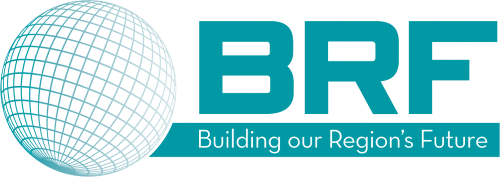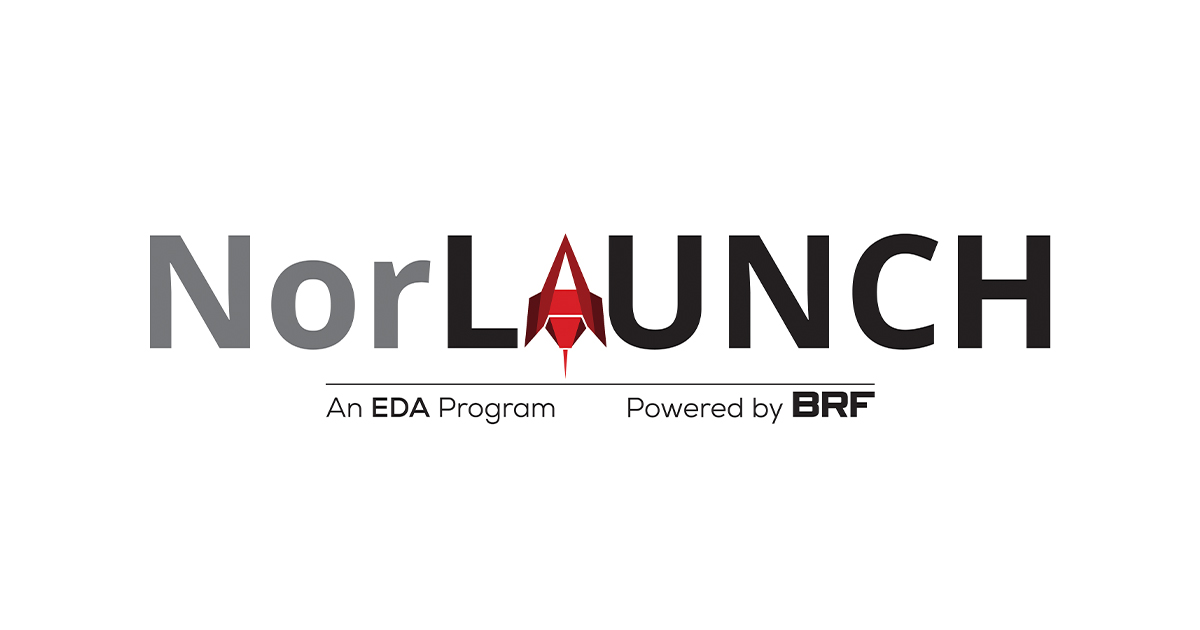BRF is an awardee of two grants totaling $2 million from the U.S. Department of Commerce’s Economic Development Administration (EDA) to accelerate technology entrepreneurship in North Louisiana by increasing inclusive access to entrepreneurial assistance and startup capital.
 The grants will be used by BRF’s Entrepreneurial Accelerator Program (EAP) to provide startup services to entrepreneurs and small businesses in North Louisiana. Startup services include financial modeling, mentoring, and assisting with funding strategies and pitches.
The grants will be used by BRF’s Entrepreneurial Accelerator Program (EAP) to provide startup services to entrepreneurs and small businesses in North Louisiana. Startup services include financial modeling, mentoring, and assisting with funding strategies and pitches.
EAP has served as the region’s startup accelerator since 2014. The program has grown to serve 21 North Louisiana parishes in recent years via a previous EDA grant, and then by piloting the Launch Network, an online platform coordinating small business and startup resources between more than 80 North Louisiana organizations. The model has gone statewide via Louisiana Economic Development.
“EAP’s Launch Network is the wide net cast to pull in ideas from 21 parishes in North Louisiana and is the quickest and most efficient way for small businesses and entrepreneurs to seek help launching or growing their business in this region,” said EAP Executive Director Dave Smith. “Via Launch Network, we can identify the exact resource or service provider that you need, or if EAP is the right fit for you, we will connect you with one of our analysts for guidance.”
EDA’s Build to Scale grants will establish two avenues within EAP to help the program serve small businesses and entrepreneurs. The first is the Venture Challenge, via NorLaunch, which supports EAP’s services to scale innovative ideas to ready them for investment. The second is the Capital Challenge, or NorCap, which supports investment activities in North Louisiana and will increase opportunities for deploying capital for businesses to launch and scale in the region.


BRF is one of 60 organizations across the country to receive a Build to Scale grant in the most recent cohort. Awardees include nonprofits, universities, government agencies and other entrepreneurship-focused organizations.
“Growing access to startup, small business and entrepreneurial services is what EAP has worked to achieve in 10 years of operations, and these grants from EDA help ensure we are continuing to grow services and inclusive access to ventures that will create jobs and diversify the economy of North Louisiana,” said John F. George Jr., BRF President and CEO.
To learn more and access assistance for starting or growing your idea or startup in North Louisiana, visit launchnetworkla.com.
About BRF (BRFLA.org)
BRF, headquartered in Shreveport, is an innovation hub and economic development organization establishing North Louisiana as a preferred destination for high growth initiatives. Diversifying the region’s economy is its mission. It fulfills this mission through initiatives that start new businesses, recruit new businesses and retain current businesses in the region, and through supporting the development of a science and technology-based workforce.
About EAP (EAPLA.com)
EAP, a division of BRF, diversifies the regional economy and creates jobs by providing services to innovative startups that have high-growth potential. EAP has helped create almost 600 jobs, and its portfolio companies have an annual payroll of $22.8 million. EAP has screened more than 1,650 ideas and provided services to more than 480 companies that have raised $224.7 million in capital.
About the U.S. Economic Development Administration (www.eda.gov)
The mission of the U.S. Economic Development Administration (EDA) is to lead the federal economic development agenda by promoting competitiveness and preparing the nation’s regions for growth and success in the worldwide economy. An agency within the U.S. Department of Commerce, EDA invests in communities and supports regional collaboration in order to create jobs for U.S. workers, promote American innovation, and accelerate long-term sustainable economic growth. EDA’s Office of Innovation and Entrepreneurship (OIE) leads the Build to Scale (B2S) program, which is authorized under Section 27 of the Stevenson-Wydler Technology Innovation Act of 1980 (15 U.S.C. § 3722).



